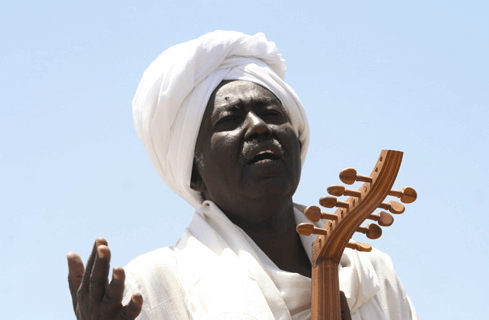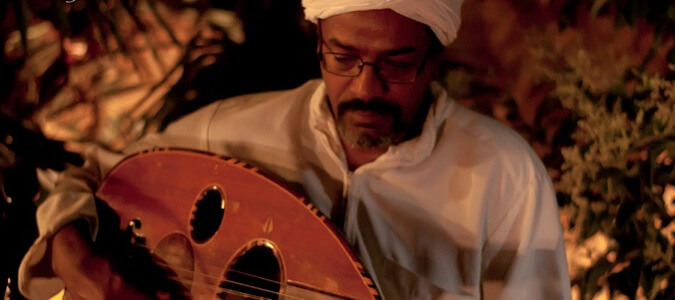The music from Sudan is a melting pot
In terms of area, Sudan is the third largest country on the African continent. With its borders with the Sahel countries in the west, the connection with the Nile to the north to Egypt, the flowing transition in the east to the Horn of Africa and in the south to the central states of Africa, Sudan has always been a crossroads of different people and cultures, especially with its hub, the capital Khartoum. “Bilad as-Sudan”, “Land of the Blacks”, this old Arabic name was used to describe the lands along the Nile, home of the Nubians, one of the most important ethnic groups with their music very much influenced by the Oud in the north. In the south, the Dinka dominate the population structure, while most of the Sudanese in the country have Arab roots. It is this constantly changing mix that has led to one of the richest musical cultures on the continent, in which all currents can be found.
Abdel Gadir Salim is among the most significant and influential singers Sudan has produced. He first introduced the rhythms and melodies of the western province of Kordofan into the national music, and then played a key role in bringing Sudanese music in general to the world. Unlike many of his great contemporaries, Salim still lives in Sudan, where he is viewed as a national icon.

Wafir Sheikh al-Din Gibril was born in Kurdufan in central Sudan and studied music at the conservatory in the capital Khartoum. He is a multi-instrumentalist, equally at home on the oud, violin or accordion. He began his professional music career as an accordionist with the bands of Abdul Aziz Almubarak, Mohammad Al Amin and Abdul Karm Al Kably. He subsequently formed his own band, Kambala, performing popular and traditional Sudanese music. He played at the 16th International Africa Festival in 2004.
